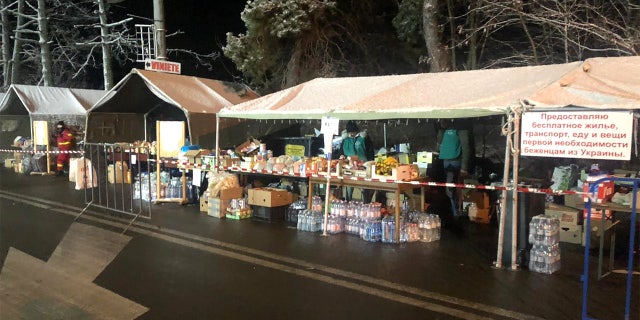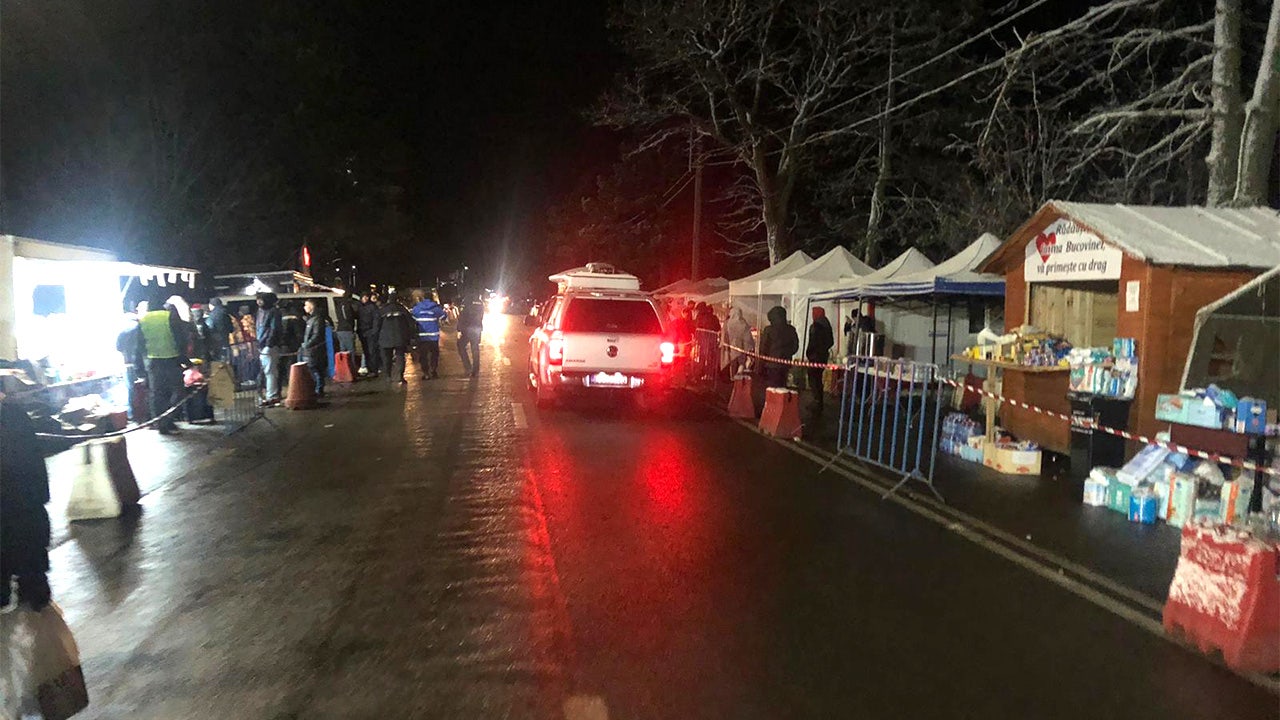NEWYou can now listen to Fox News articles!
A water engineering nonprofit has sent a team to Ukraine’s borders and neighboring countries in order to assess the safe water, sanitation and hygiene needs of tens of thousands of displaced refugees.
Water Mission’s rapid responders, who are working alongside other humanitarian organizations in the region, are in the midst of determining where the biggest populations of refugees are. Once that’s determined, they look into what safe water resources they can tap into, or if any safe water resources exist, in order to determine how to bring emergency safe water systems where they are needed most.
HELPING UKRAINIAN REFUGEES: NONPROFIT DELIVERING THOUSANDS OF HOT MEALS TO PEOPLE IN NEED
The Water Mission stationed at the boarder between Siret, Romania and Ukraine.
(Water Mission)
HOW TO HELP THE PEOPLE OF UKRAINE: 3 IDEAS FOR GIVING
“As it becomes clear what role we’re going to play, then we’ll send over all the staff we need to run our response,” Water Mission Senior Director Global Partnerships John Peays told Fox News.
Since 2001, the nonprofit has been implementing safe water, sanitation, and hygiene solutions for developing countries and disaster areas. To date, they have helped over seven million people in 57 countries.
One of the biggest areas of need during the current crisis, Peays projected, will be right on Ukraine’s borders, where there is a build-up of cars, buses, and refugees on foot trying to escape into neighboring countries.
In fact, the U.S. embassy in Kyiv tweeted Monday that some wait times at Ukraine’s borders are nearing 50 hours.

The Water Mission stationed at the boarder between Siret, Romania and Ukraine.
(Water Mission)
During any crisis, Water Missions CEO George Greene said “the need for emergency safe water access is critical for survival.”
For instance, Greene told Fox News that “you can very quickly get into a situation where improvised water sources like shallow wells and trying to get water out of the ground, or even people drinking water directly out of rivers and nearby areas… get contaminated with human waste in an excessive way.”
It can lead to water-borne illnesses and the worst case is when “cholera outbreaks happen,” he said.
Cholera, according to the Centers for Disease Control and Prevention, is a “diarrheal illness caused by infection of the intestine with Vibrio cholerae bacteria.”
People can get sick once they swallow food or water that has been contaminated with the bacteria, the CDC explains.
